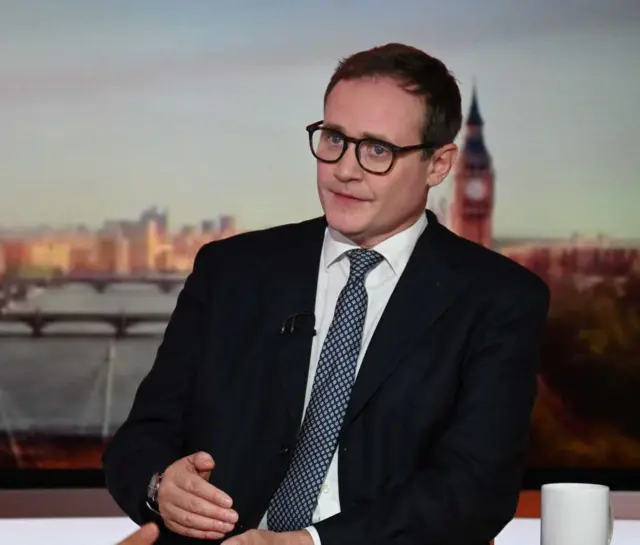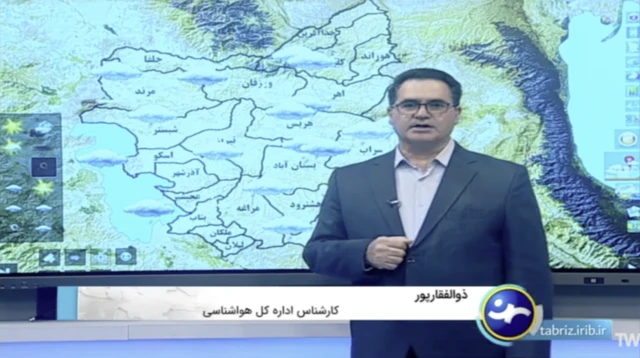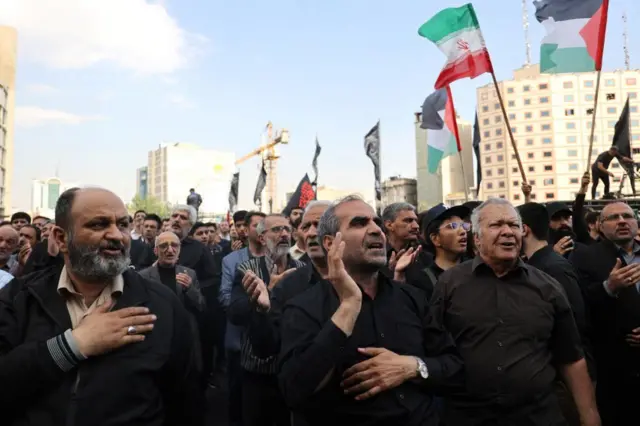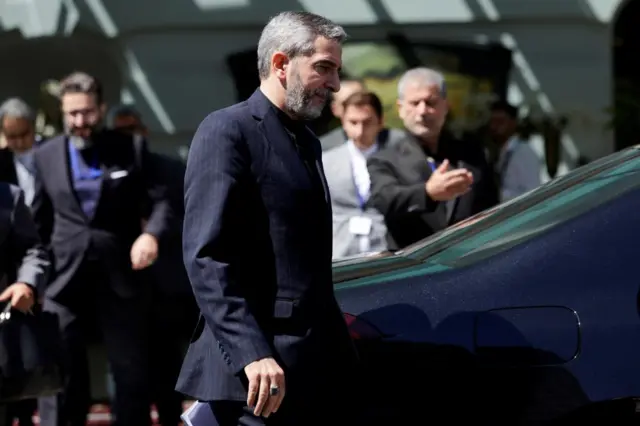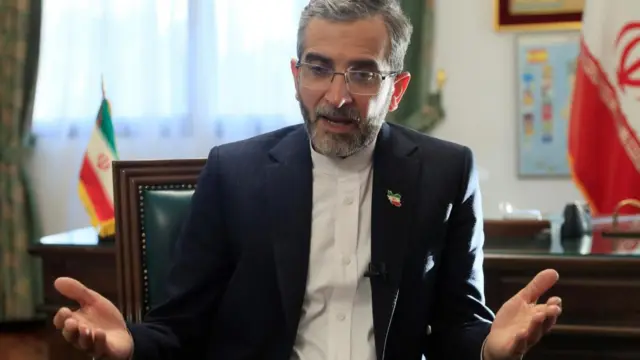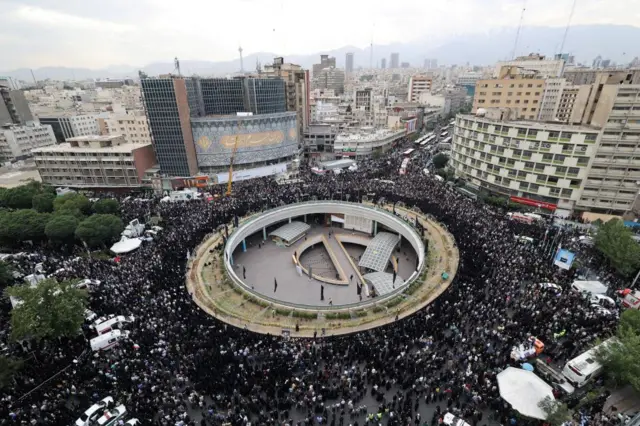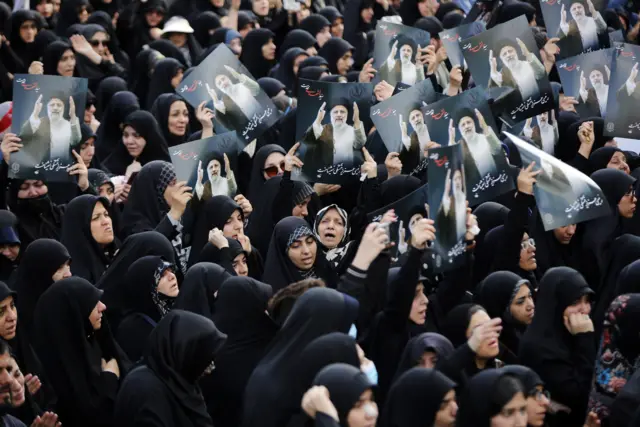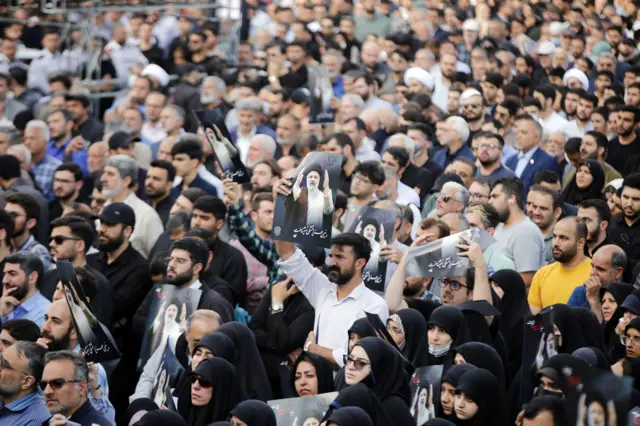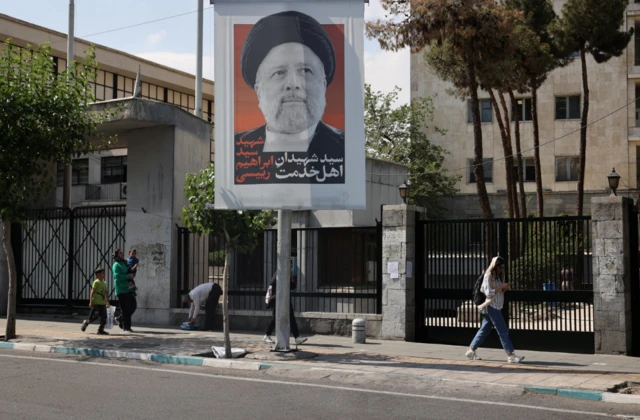Thanks for being with uspublished at 19:39 BST 20 May 2024
 Nadia Ragozhina
Nadia Ragozhina
Live editor
We are closing our coverage for the moment, thank you for being with us as we brought you news of the helicopter crash that killed Iranian President Ebrahim Raisi and seven members of his entourage.
You can catch up on all the details of the story here.
You can also read our chief international correspondent Lyse Doucet's InDepth take on What next for Iran.
This page was written by our team in London, with help from colleagues from BBC Persian. It was edited by Johanna Chisholm, James Gregory, Owen Amos and me.

